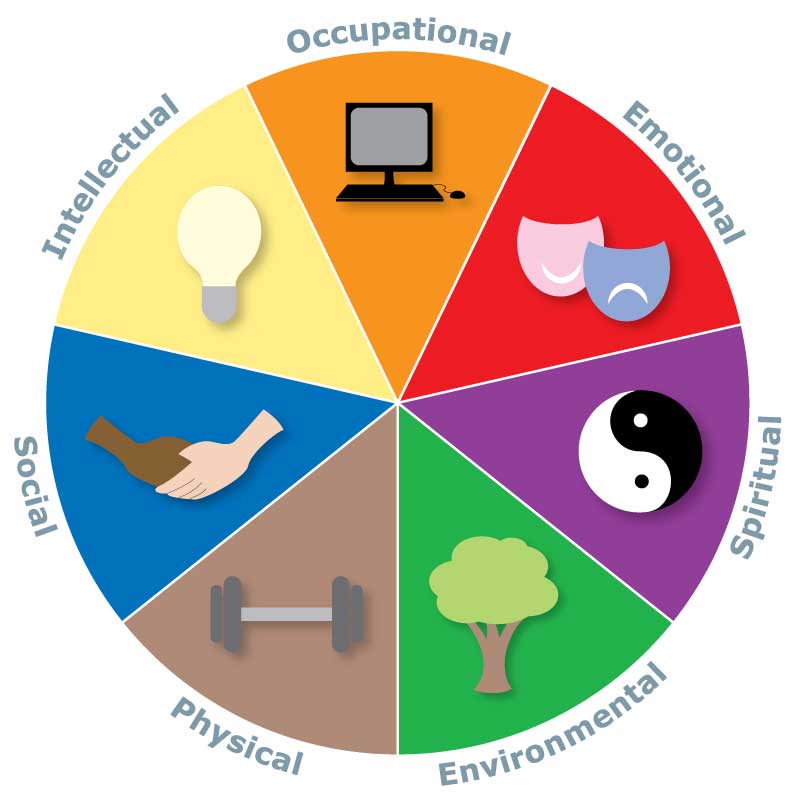What is Wellness?
Definition of Wellness
Wellness is an active process of becoming aware of and making choices toward a healthy and fulfilling life.
"...a state of complete physical, mental, and social well-being, and not merely the absence of disease or infirmity." - The World Health Organization
Dimensions of Wellness

What does wellness mean to you? Wellness is more than being free from illness. Wellness is a dynamic process of change and growth. There are many interrelated dimensions of wellness: physical, emotional, intellectual, spiritual, social, environmental, and occupational. Each dimension is equally vital in the pursuit of optimum health.
Emotional
Emotional wellness is a dimension that involves being fully in touch with feelings and emotions regarding yourself and others. Developing self-confidence, love, and trust for others are key aspects that help to define emotional wellness. Having and maintaining a strong, healthy emotional aspect of personal wellness can help cope with the emotional challenges in life that often go hand-in-hand with college years.
Intellectual
This aspect of wellness refers to the development of the mind as an instrument for decision making as well as learning and interpreting experiences. It involves critical thinking, curiosity, and creativity. The ability to be open to new experiences and ideas that contribute to growth are characteristics associated with a healthy intellectual dimension.
Social
Social wellness refers to the idea of being able to develop meaningful interpersonal relationships. It also involves being able to maneuver through various social situations while appreciating the similarities and differences between people.
Spiritual
Spiritual wellness revolves around the development of your own personal belief system and adherence to that belief system. Seeking purpose and meaning in life, whatever your beliefs, while appreciating the various religious perspectives of other people is a key aspect of spiritual wellness.
Physical
This is perhaps the most well-known category and it includes a personal attention to and maintenance of overall health through nutrition, physical activity, sleep, and positive healthy habits to maintain a healthy quality of life. Physical wellness is the ability to take charge of your health by making conscious decisions to be healthy.
Environmental
It is important to lead a lifestyle that is respectful of our environment. This includes respecting nature and those species living in it. Also, respect for others living in our environment is just as necessary as respect for the physical environment itself. While today’s climate is one of increased environmental awareness, the average person may still be unconcerned or simply uninformed about what he or she can do to help the environment. You don’t have to be a member of an organization to help; an individual can help by simply leading an environmentally conscious life
Occupational
Occupational wellness is the ability to achieve a balance between work and leisure time, addressing workplace stress and building relationships with co-workers. It focuses on our search for a calling and involves exploring various career options and finding where you fit.

